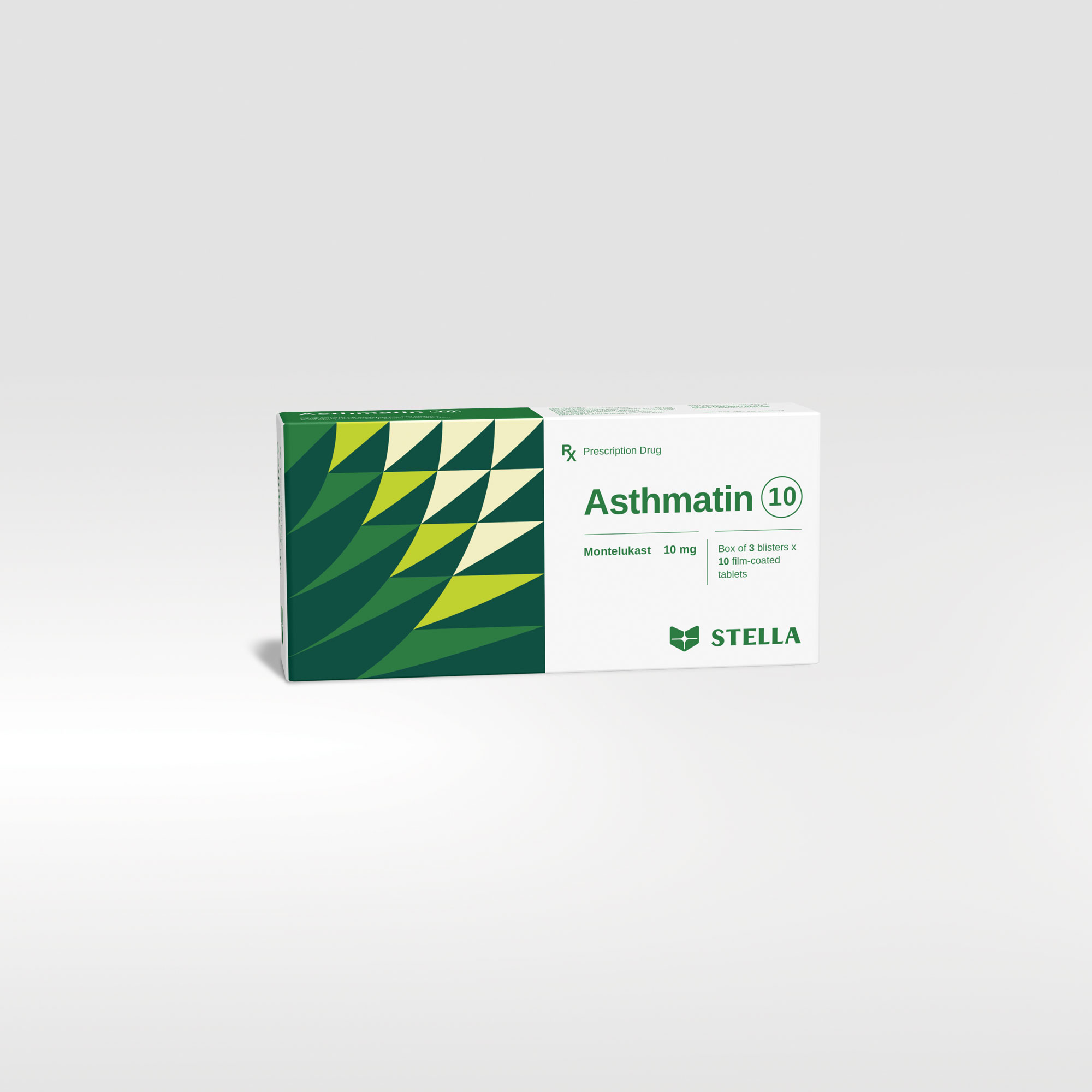Neuropsychiatric events
Serious neuropsychiatric (NP) events have been reported with use of Asthmatin 10. These postmarketing reports have been highly variable and included, but were not limited to, agitation, aggressive behavior or hostility, anxiousness, depression, disorientation, disturbance in attention, dream abnormalities, dysphemia (stuttering), hallucinations, insomnia, irritability, memory impairment, obsessive-compulsive symptoms, restlessness, somnambulism, suicidal thoughts and behavior (including suicide), tic, and tremor.
NP events have been reported in adult, adolescent, and pediatric patients with and without a previous history of psychiatric disorder.
NP events have been reported mostly during Asthmatin 10 treatment, but some were reported after Asthmatin 10 discontinuation.
Because of the risk of NP events, the benefits of Asthmatin 10 may not outweigh the risks in some patients, particularly when the symptoms of disease may be mild and adequately treated with alternative therapies. Reserve use of Asthmatin 10 for patients with allergic rhinitis who have an inadequate response or intolerance to alternative therapies.
In patients with asthma or exercise-induced bronchoconstriction, consider the benefits and risks before prescribing Asthmatin 10.
Advise patients and/or caregivers to be alert for changes in behavior or for new NP symptoms when taking Asthmatin 10. If changes in behavior are observed, or if new NP symptoms or suicidal thoughts and/or behavior occur, advise patients to discontinue Asthmatin 10 and contact a healthcare provider immediately. In many cases, symptoms resolved after stopping Asthmatin 10 therapy; however, in some cases symptoms persisted after discontinuation of Asthmatin 10. Therefore, continue to monitor and provide supportive care until symptoms resolve. Re-evaluate the benefits and risks of restarting treatment with Asthmatin 10 if such events occur.
Acute asthma
Asthmatin 10 is not indicated for use in the reversal of bronchospasm in acute asthma attacks, including status asthmaticus. Patients should be advised to have appropriate rescue medication available. Therapy with Asthmatin 10 can be continued during acute exacerbations of asthma. Patients who have exacerbations of asthma after exercise should have available for rescue a short-acting inhaled β-agonist.
Concomitant corticosteroid use
While the dose of inhaled corticosteroid may be reduced gradually under medical supervision, Asthmatin 10 should not be abruptly substituted for inhaled or oral corticosteroids.
Aspirin sensitivity
Patients with known aspirin sensitivity should continue avoidance of aspirin or non-steroidal antiinflammatory agents while taking Asthmatin 10. Although Asthmatin 10 is effective in improving airway function in asthmatics with documented aspirin sensitivity, it has not been shown to truncate bronchoconstrictor response to aspirin and other non-steroidal anti-inflammatory drugs in aspirinsensitive asthmatic patients.
Eosinophilic conditions
Patients with asthma on therapy with Asthmatin 10 may present with systemic eosinophilia, sometimes presenting with clinical features of vasculitis consistent with Churg-Strauss syndrome, a condition which is often treated with systemic corticosteroid therapy. These events have been sometimes associated with the reduction of oral corticosteroid therapy. Physicians should be alert to eosinophilia, vasculitic rash, worsening pulmonary symptoms, cardiac complications, and/or neuropathy presenting in their patients. A causal association between Asthmatin 10 and these underlying conditions has not been established.
Excipient
Asthmatin 10 contains lactose. Patients with rare hereditary problems of galactose intolerance, total lactase deficiency or glucose-galactose malabsorption should not take this medicine.
Use during pregnancy only when necessary.
Cautions should be exercised when taking the drug during lactation.
Montelukast is not expected to affect a patient’s ability to drive a car or operate machinery. However, in very rare cases, individuals have reported drowsiness or dizziness.





















